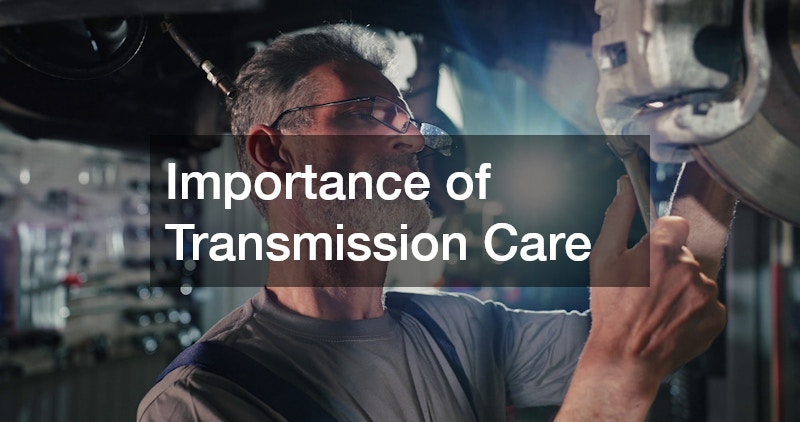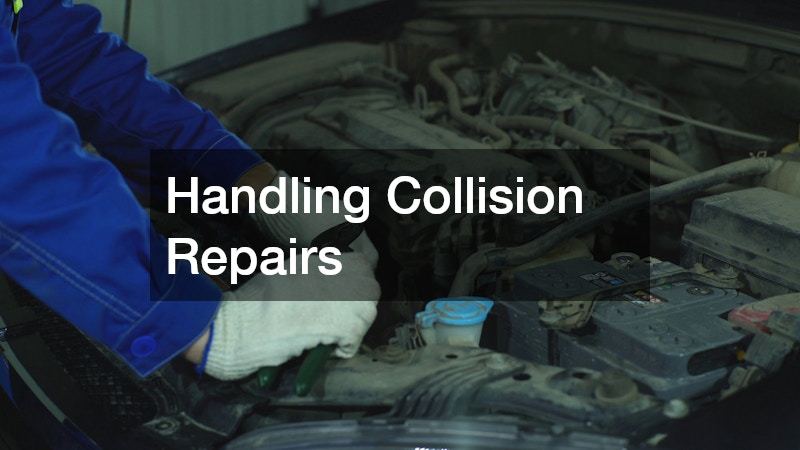Establishing a robust vehicle maintenance plan is essential for ensuring the longevity and functionality of any fleet or individual vehicle. A vehicle maintenance policy outlines the procedures and standards for maintaining vehicles, allowing for proactive care rather than reactive repairs. Well-defined maintenance practices not only contribute to safety on the road but can also lead to cost savings through reduced downtime and fewer major repairs.
In today’s environment, where vehicles are increasingly relied upon for both personal and business purposes, a solid vehicle maintenance plan becomes indispensable. It helps vehicle owners prioritize routine inspections and conduct timely repairs, such as transmission repair or brake repairs, which are crucial for optimal performance. Moreover, the policy provides guidelines for selecting an appropriate auto repair shop and managing unforeseen circumstances like breakdowns or accidents, reinforcing the importance of a comprehensive plan.
Routine Fleet Maintenance
Routine fleet maintenance serves as the backbone of any effective vehicle maintenance policy. Regular scheduled maintenance helps identify potential issues before they escalate into significant problems, thus ensuring that vehicles remain in optimal working order. Without a dedicated focus on routine fleet maintenance, vehicle owners may find themselves facing unexpected repairs that could have been easily avoided.
Specifically, a comprehensive vehicle maintenance policy should include guidelines for regular inspections and maintenance tasks like oil changes, tire rotations, and brake checks. Each vehicle in the fleet should have a scheduled routine that encompasses these essential services to maintain reliability and safety. Additionally, maintaining good records through fleet repair logs can help in analyzing patterns, facilitating better decision-making regarding future maintenance needs.
In practice, organizations often rely on software systems that streamline the scheduling of routine maintenance for multiple vehicles within a fleet. These systems can alert fleet managers about upcoming service due dates and track completed services, forming a vital part of the maintenance policy. By adopting a systematic approach to routine fleet maintenance, companies can significantly reduce unplanned downtime and enhance the overall performance of their vehicles.
Importance of Transmission Care

Transmission care is a critical aspect of maintaining the overall health of a vehicle, and it can’t be overlooked in a vehicle maintenance plan. The transmission is responsible for transferring power from the engine to the wheels, making it vital for vehicle performance. Neglecting transmission maintenance can lead to severe issues that can jeopardize the vehicle’s mobility and safety.
A vehicle maintenance policy should detail the importance of performing regular transmission fluid checks and changes. Monitoring fluid levels and ensuring that the transmission system remains clean can greatly reduce the risk of costly transmission repair. Addressing any signs of issues, such as slipping or unusual noises, promptly within the context of the maintenance policy can save vehicle owners from experiencing inconvenient mid-road failures.
Moreover, understanding the different types of transmission systems and their specific maintenance requirements can help in ensuring optimal performance. Vehicle owners should educate themselves about manufacturer recommendations and integrate these insights into their vehicle maintenance plan. By emphasizing transmission care, the policy not only protects the vehicle’s operational efficiency but also enhances longevity, reducing long-term repair costs.
Brake Maintenance Essentials
Brake maintenance is an essential element of a vehicle maintenance policy that ensures safety on the road. Given that brakes are crucial for stopping and control, any deterioration in their function can lead to dangerous situations. A well-structured policy can aid in regular brake inspections and timely repairs, ultimately enhancing vehicular safety.
Within the framework of a vehicle maintenance plan, it’s important to establish a schedule for checking brake pads, rotors, and fluid levels. Regular assessments will allow for the early detection of issues that might necessitate brake repairs and replacements. For fleet vehicles, ensuring that all brakes are functioning appropriately can safeguard drivers and other road users from avoidable accidents.
Furthermore, a proactive approach to brake maintenance helps in cost management since timely interventions can prevent larger-scale problems down the line. Strategically documenting brake maintenance activities allows vehicle managers to keep track of performance trends and make anecdotal assessments about brake wear. A comprehensive vehicle maintenance policy that prioritizes brake wellness can significantly enhance vehicles’ safety standards and reliability in operation.
Choosing an Auto Repair Shop

Choosing the right auto repair shop is a significant decision with lasting implications for a vehicle maintenance policy. Not only does a trusted repair shop provide quality service, but it can also help in developing a rapport for long-term vehicle care. A reliable partner in repairs ensures that every service rendered aligns with the expectations set within the vehicle maintenance plan.
When evaluating potential auto repair shops, factors such as certifications, customer reviews, and experience with specific vehicle makes and models should be taken into account. A comprehensive vehicle maintenance plan might include a checklist of criteria to assess different shops, ensuring informed decision-making. Ultimately, a strong relationship with a chosen auto repair shop can lead to customized service options tailored specifically to the vehicle’s needs.
Additionally, beyond routine services, it’s crucial that the auto repair shop maintains transparency regarding pricing and repair processes. This transparency fosters trust between the vehicle owner and the service provider, making any future repairs, such as collision repairs or other unexpected issues, more manageable. By outlining and implementing standards for selecting an auto repair shop, a vehicle maintenance policy can enhance both the quality of service received and the longevity of the vehicle.
Emergency Towing Plans
An effective vehicle maintenance plan must incorporate emergency towing plans to address unexpected breakdowns and accidents. Such plans ensure that vehicle owners have accessible resources when faced with unfortunate situations, providing peace of mind during challenging circumstances. Emergency towing plans are imperative, especially for fleets that rely heavily on their vehicles for daily operations.
At a minimum, the vehicle maintenance policy should outline the contact information for reliable towing services and steps to follow when a breakdown occurs. This may include ensuring all drivers are familiar with the policies and procedures, thus allowing them to act quickly and efficiently. Furthermore, having contracts with reputable towing services in advance can save time and reduce stress when emergencies arise.
Moreover, understanding the parameters of the tow, such as mileage limits and costs, should also feature in the vehicle maintenance plan. These details help vehicle owners manage any expenses associated with towing, ultimately leading to a more efficient vehicle management process. As unexpected situations can significantly disrupt operations, comprehensive emergency towing plans contribute to minimizing downtime and ensuring safety for all road users.
Handling Collision Repairs

Collision repairs are a vital aspect of vehicle maintenance that should be thoughtfully addressed within a vehicle maintenance plan. Regardless of how careful a driver is, accidents can happen, and having a plan in place for when they do is essential. A vehicle maintenance policy that includes detailed handling procedures for collision repairs can streamline the recovery process and minimize disruptions.
When an accident occurs, the vehicle maintenance plan should guide drivers on what steps to take following the incident, including contacting insurance, documenting the scene, and arranging for repairs. This ensures that all necessary information is captured promptly, which is crucial for effective and timely collision repairs. Establishing relationships with reputable collision repair shops ahead of time can also facilitate a smoother repair process when the need arises.
Additionally, maintaining clear communication with the selected collision repair shop can help in managing expectations related to repair timelines and costs. Regular updates can be invaluable in keeping vehicle owners informed and reassured during the repair process. By incorporating specific protocols for handling collision repairs in the vehicle maintenance policy, organizations can effectively mitigate the stress associated with accidents and restore their vehicles to optimal performance as quickly as possible.
Car AC Maintenance Tips
Maintaining the car’s air conditioning system is a crucial part of a comprehensive vehicle maintenance policy, especially in warmer climates. A fully functioning AC system not only improves comfort but is essential for driver focus and safety, particularly during long trips. Regular AC maintenance can help detect potential issues early on, preventing expensive car AC repairs later on.
To facilitate effective car AC maintenance, the vehicle maintenance plan should outline routine inspections as part of a seasonal check-up. This includes monitoring refrigerant levels, checking for leaks, and ensuring that all components of the AC system are operating correctly. Timely servicing can greatly enhance efficiency and overall performance, which is especially beneficial for fleet vehicles requiring consistently comfortable conditions.
Moreover, educating drivers on the importance of car AC care can further prolong the system’s life cycle. Simple practices, such as running the AC regularly, even in cooler weather, help to keep the system lubricated and functional. By integrating these car AC maintenance tips into the vehicle maintenance plan, vehicle owners can ensure comfort, effective operation, and longevity of the air conditioning system.
Working with Local Mechanics

Collaborating with local mechanics can be a significant asset when crafting a vehicle maintenance policy. Local experts often have a deep understanding of the common issues that vehicles face and can offer personalized service based on extensive experience. Relying on local mechanics can provide vehicle owners with targeted insights that enhance their policy guidelines.
The vehicle maintenance policy should include criteria for selecting reliable local mechanics based on their expertise and trustworthiness. Establishing relationships with these professionals allows for quicker service and potentially better pricing on repairs and routine maintenance. Furthermore, local mechanics often have the flexibility to address urgent repair needs promptly, an essential advantage when managing fleets or personal vehicles.
Additionally, fostering good communication with local mechanics can prove beneficial in building trust and ensuring optimal service delivery. Regular dialogues about the vehicle’s performance and past issues allow mechanics to provide tailored advice and service recommendations moving forward. By integrating local mechanics into the vehicle maintenance policy, vehicle owners can bolster their overall vehicle care strategy, ensuring comprehensive support for ongoing maintenance needs.
Managing Title and Registration
Effective management of title and registration is a critical component of a well-rounded vehicle maintenance plan. Ensuring that all necessary paperwork is up to date prevents legal complications and ensures that vehicles can be operated without interruption. A vehicle maintenance plan should provide clear guidelines for managing title registration and understanding local regulations.
Specific details regarding the documentation required for title transfers, renewals, and registrations should be included within the vehicle maintenance policy. Having a routine schedule for verifying the status of title and registration will help vehicle owners avoid any pitfalls associated with expired registrations or missing documentation. Maintaining meticulous records related to title and registration can facilitate smoother processes during inspections or law enforcement interactions.
Moreover, embracing technology, such as mobile applications or online portals, can simplify the tracking of title and registration status. These modern approaches can make it easier to stay informed about renewal dates or any changes in local registration requirements. By prioritizing the management of title and registration within the vehicle maintenance plan, vehicle owners can streamline their responsibilities and lessen the risk of facing penalties or operational disruptions.
Paint and Body Work Care
Paint and body work care form an often-overlooked area of a comprehensive vehicle maintenance policy. Maintaining the vehicle’s exterior not only preserves aesthetic appeal but also protects against rust and the elements, supporting long-term durability. A vehicle maintenance plan should therefore include regular inspections and care strategies for paint and body protection.
Guidelines for periodic washing, waxing, and addressing any minor dings or scratches should be detailed in the vehicle maintenance plan. Additionally, a clear protocol for dealing with more significant damage, such as scheduling visits to a designated paint and body shop, should be established. Ensuring that repairs are completed quickly can help maintain the vehicle’s resale value and prevent more extensive damage.
Moreover, proactive discussions about paint and body care with repair professionals can lead to personalized recommendations based on local climate conditions. Understanding the specific treatments or protective coatings can enhance the vehicle’s exterior durability. By emphasizing paint and body work care as part of their vehicle maintenance plan, vehicle owners can enhance the longevity and appearance of their vehicles, showcasing investment value.
Building a strong vehicle maintenance policy is essential for anyone seeking to ensure the longevity and effectiveness of their vehicles. By encompassing essential elements such as routine fleet maintenance, transmission care, brake maintenance, and choosing a reliable auto repair shop, vehicle owners construct a robust framework for operational efficiency. Furthermore, addressing aspects like emergency towing plans, collision repairs, car AC maintenance, and working with local mechanics solidifies this framework while enhancing the overall safety and performance of their vehicles.
